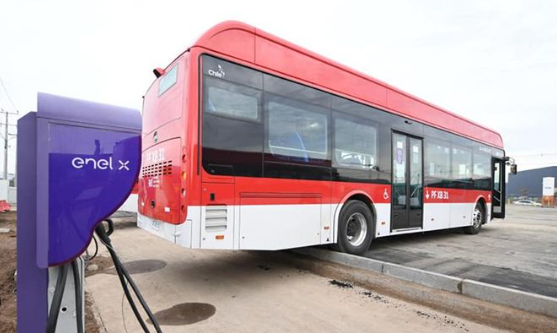
Chinese Technology is Key to Chile’s Position in Electromobility

The Minister of Transport and Telecommunications of Chile, Juan Carlos Muñoz, assured that without the technology that China has been developing it would be impossible to be at the forefront of electromobility in Latin America.
In an interview with the Xinhua news agency, the official informed that so far the collaboration on electric mobility with the Asians has been very important.
“That is the result of the fact that our country is very neutral in terms of the technology it receives from different countries and without the technology that China has been developing it would be impossible to be where we have reached today,” said the minister.

Read also: Chile Incorporates New Electric Buses in Greater Valparaíso
Projects to Continue
The senior official of the South American country explained that Chile will continue to advance in this direction, as it is moving forward in the area of electric buses and trains for the central-south zone of the country.
“What one should expect from Chile is that in the future there will also be greater opportunities to provide electromobility technology for the country,” he said.
He stressed that the vision of the southern nation is that by 2040 all public transport buses will be electric and “to continue advancing in this effort to recover our railway network”.
The Metropolitan Mobility Network (Red), the urban public transport system, closed 2023 with a fleet of 2,200 electric buses. In addition to adding 40 vehicles of the same type for the city of Antofagasta, in the north of the country, the first fleet outside the capital of the South American country.
Despite the progress, according to data from the National Automobile Association of Chile (ANAC), the country is still below 1% of total sales in a year.
“This has not kept up with the pace seen in China. In Chile less than 1% of new vehicles entering the industry are electric,” he said. To alleviate this situation, he highlighted the authorization of the Chinese standard in the South American country.
“This also opens the space for a market that will allow us to reduce the costs of incorporating electromobility at the automobile level. Here there is no preference for vehicles from one country or another; rather, we are open to vehicles that improve, are more competitive, more economical and can help us”, Muñoz concluded.
Latam Mobility in Chile
In August, Latam Mobility, the largest sustainable mobility community in Latin America, will arrive again in Santiago de Chile for the 2024 meeting.
It will be two days that will bring together the most prominent industry leaders, along with public sector personalities, to offer their perspectives on advances in sustainable mobility, electromobility and sustainability.





